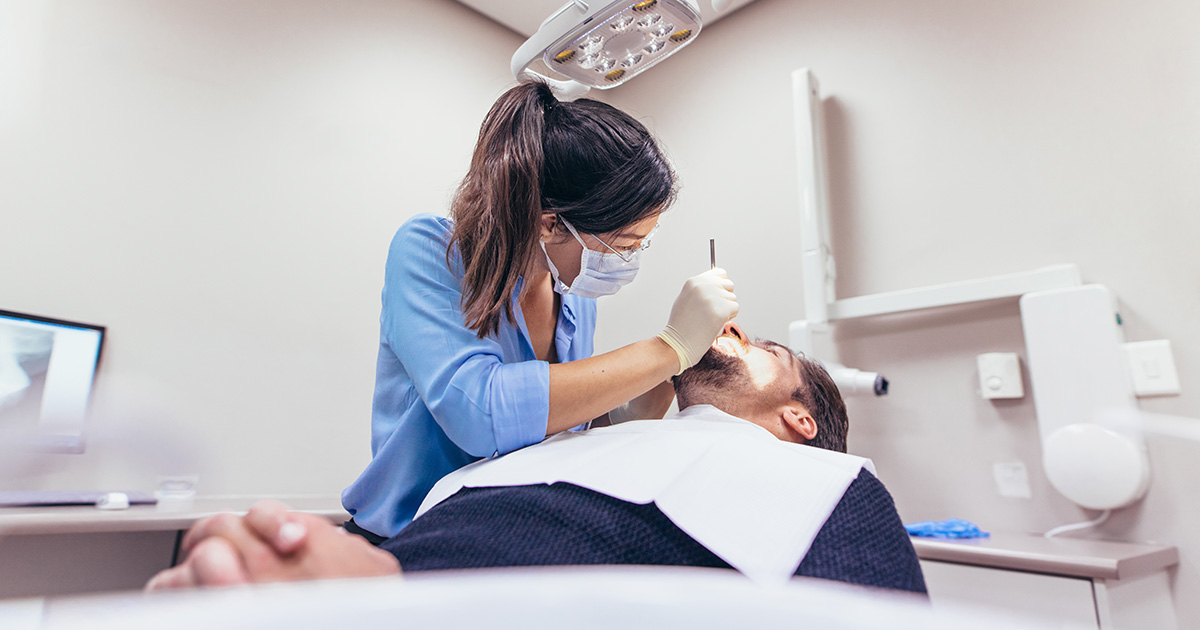Dental Malpractice
If you feel that you have been the victim of dental surgery negligence, contact our team of legal professionals today.

Claims for Dental Malpractice—Don’t Lose Your Smile Over Medical Negligence
Dental surgery is a necessary service which we all have to use on a regular basis whether for check-ups or emergency dental surgery. Choosing a dentist who we can trust and feel comfortable with is very important. If we feel uncomfortable with our dentist, we are less likely to visit them on a regular basis leading to long-term health issues.
Dental surgery can be a painful and traumatic experience and even more so when there is dental negligence.
Dental negligence – what is it?
Medical negligence is defined by law as the failure of a medical professional to act in a professional way or acting in a way which deviates from the accepted standard of medical care.
This may mean a failure to take appropriate action when periodontal disease is evident, leading to teeth becoming loose or falling out. It could also mean failing to spot a cavity which subsequently leads to the tooth having to be removed due to irreparable decay. Dental negligence could also mean providing unnecessary treatment which causes damage to other teeth, for example bridge work which causes damage to other teeth.
O’Hare Solicitors has a team with decades of experience in dealing with medical dental negligence claims and will help you prepare a strong case.
We will help ensure that you can access the very best chance to get appropriate compensation.
Can I claim compensation for dental malpractice?
If you or a loved one has experienced inadequate dental surgery care, and as a result have suffered unnecessary pain or trauma, O’Hare Solicitors can advise you on whether you may be entitled to compensation. We can help to identify if errors in your treatment have occurred and are negligent. We use independent experts to assess the treatment you have received and to ascertain if this treatment falls below the necessary dental standards which are required by law.
Our legal medical experts will help to document yourexperiences to establish the facts. We will help you to discover whether youare entitled to compensation for the pain and trauma you have suffered.
What kinds of medical negligence can occur in dentistry
When you visit the dentist, you expect to be given the best advice and the highest standard of dental surgical treatment. You trust your dentist with their training and experience. You want to feel comfortable that your oral health is in the best hands and any health issues are picked up in a timely fashion and the appropriate treatment provided. In the event where this does not happen and treatment falls short of expected standards, you may be the victim of medical dental negligence.
You may then be entitled to claim compensation to rectify any problems which have occurred whether these have long or short-term consequences. When treatment falls below standard it is important to recognise the issues that can occur.
These can include:
- Incorrect diagnosis
- Missed diagnosis
- Unnecessary performance of dental procedures
- Incorrect administration or dosage of local anesthesia
- Incorrect prescribing
- Errors in actual procedure or treatment
- Inadequate wound care and infection prevention measures
What about complications after dental treatment?
Dental surgery negligence may not be immediately obvious straight after treatment. It may take some time for dental negligence to be detected. Following surgery, complications may arise, which cause you long-term health issues or require further treatment.
To check if you have a case for dental medical negligence, it’s important to fully understand what dental negligence is. Medical negligence can exacerbate your existing condition or cause further illness or injury and have a long-term negative impact on your oral health. Why not talk to our legal team and let us assess if you are entitled to compensation?
Additional types of negligence in dental surgery
- Rushed or shoddy treatment leading to permanent nerve damage or paralysis
- Failure to diagnose oral cancer
- Failure to spot dental decay
- Incorrect prescribing
- Failure to refer patient for further tests, such as an X-ray leading to missed diagnosis
- Incorrect reading of tests such as X-rays
- Incorrect documentation of results leading to subsequent mistreatment
- Failure to recognise the serious conditions causing delay in treatment and health deterioration
- Nerve damage or facial paralysis as a result of surgery
- Damage to teeth and gums due to incorrect levels of cosmetic bleaching chemicals
- Delay in correct treatment
- Root canal treatment which leads to irreparable damage to tooth
- Dental implant surgery which fails and causes further damage
- Restorative dentistry errors


